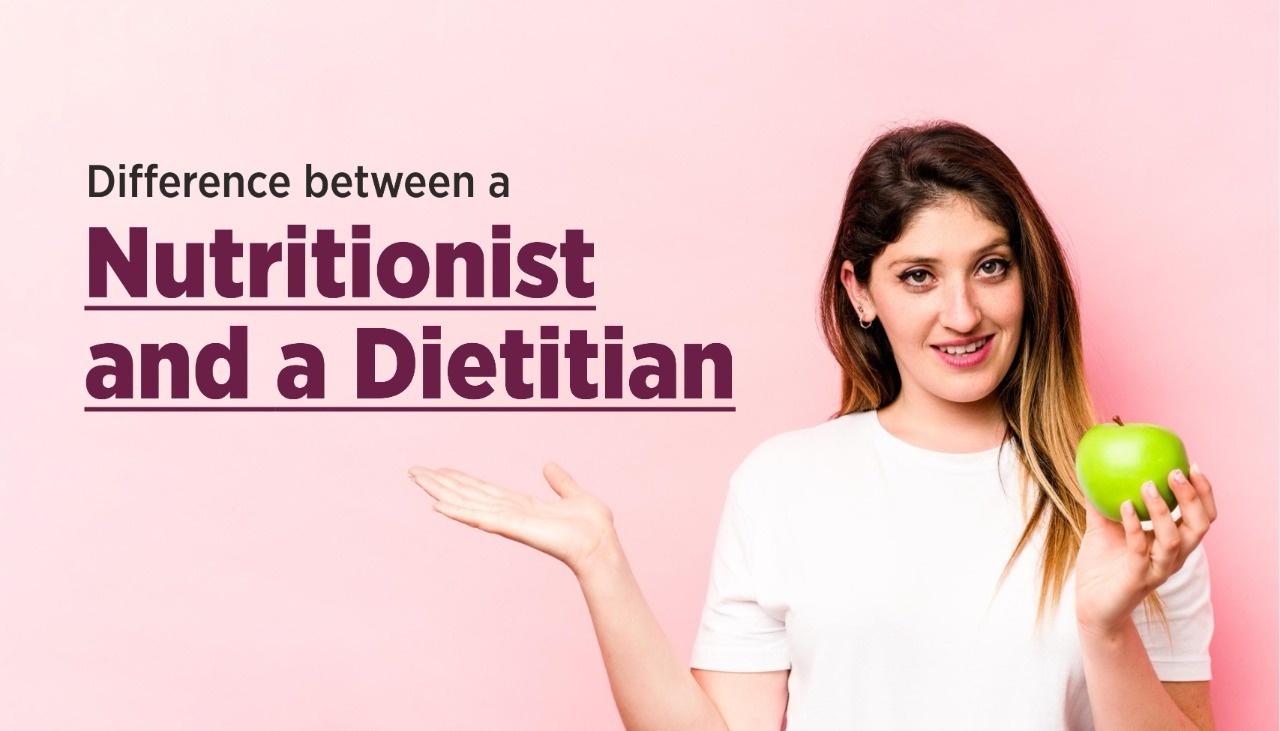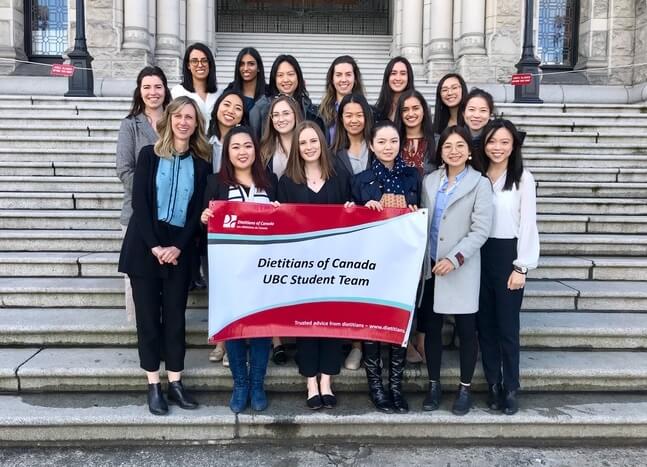All Categories
Featured
Table of Contents
-1
In the United States and several other countries, a dietitian is a board-certified food and nourishment specialist. They are very educated in the area of nourishment and dietetics the scientific research of food, nutrition, and their influence on human health and wellness. Through substantial training, dietitians obtain the expertise to give evidence-based clinical nutrition therapy and dietary therapy tailored to satisfy an individual's requirements.
-1To make clear, the credentials of RD and RDN are compatible. Nonetheless, RDN is a much more recent classification. Dietitians can select which credential they would certainly instead make use of. To make these credentials dietitians-to-be must initially gain a bachelor's level or comparable credit scores from a certified program at an university or college. Commonly, this requires an undergraduate science degree, including programs in biology, microbiology, natural and inorganic chemistry, biochemistry, makeup, and physiology, in addition to more specialized nourishment coursework.
Fitness And Nutrition Coaching
-1This enables them to assess severe demands, focusing on dangerous conditions. Inpatient and outpatient dietitians additionally provide nutrition education and learning to people with specialized needs, such as those recently out of surgical procedure, in cancer therapy, or diagnosed with persistent health problems like diabetic issues or kidney disease. In the outpatient setting, they give extra extensive dietary counseling working in the direction of a nutrition-oriented objective.
-1Research study dietitians commonly work in research medical facilities, companies, or universities. Once dietitians have actually earned their credentials and are working in the area, they can go on to specialize in a specific subcategory, such as pediatrics or sports dietetics.
-1Others might function as health and nourishment experts in media or as public audio speakers (Adolescent Dietary Support). Dietitians are qualified to handle nutrition therapy throughout a span of acute and chronic problems.
Adhd Nutritionist (Ardross )
-1In lots of states, such as Alaska, Florida, Illinois, Maryland, Massachusetts, and Pennsylvania, RDs and CNSs are granted the very same state certificate, generally called a Certified Dietitian Nutritional Expert (LDN) certificate. In states that don't control the usage of this term, anybody with an interest in diet plan or nutrition may call themselves a nutritionist.
-1Due to the fact that uncredentialed nutritional experts commonly lack the proficiency and training for medical nourishment treatment and nourishment therapy, following their advice can be taken into consideration unsafe (). Prior to seeking advice from a nutritional expert, you might intend to inspect whether your state regulates that might use this title. In the united state states that don't manage the term, no levels or qualifications are required to be a nutritional expert.

-1
In states that do mandate licensure, the CNS or RD credential may called for. Those with CNS credentials are health and wellness specialists like nurses or medical professionals with sophisticated wellness levels that have sought out added coursework, completed supervised technique hours, and passed an examination supervised by the Board for Accreditation of Nutrition Specialists.
-1While a few of these strategies might have robust scientific backing, others might not. Providing nourishment recommendations without the appropriate understanding and training can be unsafe, especially when counseling those with wellness problems. If you are taking into consideration getting in touch with a nutritionist, you may desire to ask if they are a CNS or have state licensure or accreditation, or one more credential.
Dietitian Consultant – Ardross
-1Numerous states especially manage this term. Furthermore, nutritional experts may go after a sophisticated CNS accreditation.
-1It can be challenging to aid people make genuine, enduring modifications in their lives. Both dietitians and nutritional experts offer an array of nutrition-based solutions to clients.
-1They have to have completed some level of education and learning in their field. They are also needed to have finished as much as a year of monitored work, functioning within a directed program at a health care center, providing organization, or community body. Dietitians have far higher expectations put on their capacities and level of professionalism and reliability.
-1This implies that there is no body that manages their qualifications and no especially rigorous standards that nutritionists demand to adhere to in order to be able to exercise. Dietitians, on the various other hand, are registered with country wide acknowledged bodies, such as the Dietitians Organization of Australia. They need to comply with the National Proficiency Criteria for Dietitians.
Digestive Health Nutrition

-1
You can practice as a nutritional expert without the exact same degree of certification as a dietitian. Nutritionist training courses can differ in size and high quality, with some as brief as 6 weeks and covering far less content than a dietetics program. Depending upon your education carrier, you can obtain a considerable amount of expertise via researching a basic nutrition program; however it is essential to explore the program content prior to commencing.
-1This can include attending sector workshops or reviewing industry publications. Nutritionists, on the various other hand, usually earn their certifications in order to supplement various other credentials and give better recommendations to their clients. Nutritional experts can gain work in a variety of fields, including public health recommendations, advice for individuals, and dealing with personal organisations.
-1Nutritionists can work with showing off organisations, fitness centers, colleges and recommend media outlets on basic terms and correct usage of terms. Usually, individuals will certainly seek the services of a nutritional expert to aid them in getting into form. Dietitians can operate in a lot of the very same roles as nutritional experts. With a higher degree of accreditation, they can easily go into a duty that a nutritionist would certainly hold, offered they are or else equal.
Integrative Nutritionist – Ardross 6153
-1Dietitians commonly function with more medically delicate customers. Since of the high degree of knowledge required to provide solutions to these individuals, just approved dietitians are permitted to give treatment.
-1In Australia there is a distinction between a dietitian and various other nutritional health and wellness suppliers including nutritionists. All dietitians are nutritional experts, yet nutritionists without a dietetics qualification can not call themselves a dietitian.
-1Dietitians with the Accredited Practising Dietitian (APD) credential dedicate to ongoing training and education throughout their professions. They stick to our code of conduct. Dietitians have the knowledge and abilities found in the National Competency Standards for Dietitians. As a career, nutritionists are not regulated in Australia under NASRHP or licensed under a solitary regulative body.
Personal Nutritionist (Ardross )
-1If you have a chronic wellness condition and a care strategy from your GP, you might have the ability to claim a Medicare rebate when you see an APD. Find out more regarding assistance with prices when seeing a dietitian. The main objective of individuals operating in the profession of dietetics is symbolized in this declaration: The profession of dietetics contributes to the promo of health and the avoidance and therapy of disease by optimizing the nutrition of populaces, communities and individuals.
Latest Posts
Inclusive Womens Health Specialist Near Me
Comprehensive Womens Health Specialist – [:suburb] [:state]
Transparent Functional Fitness